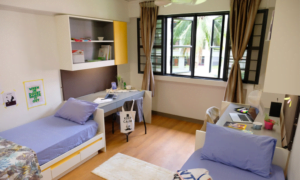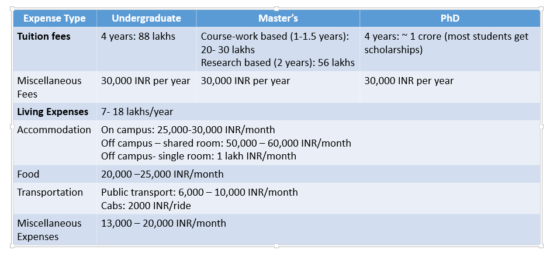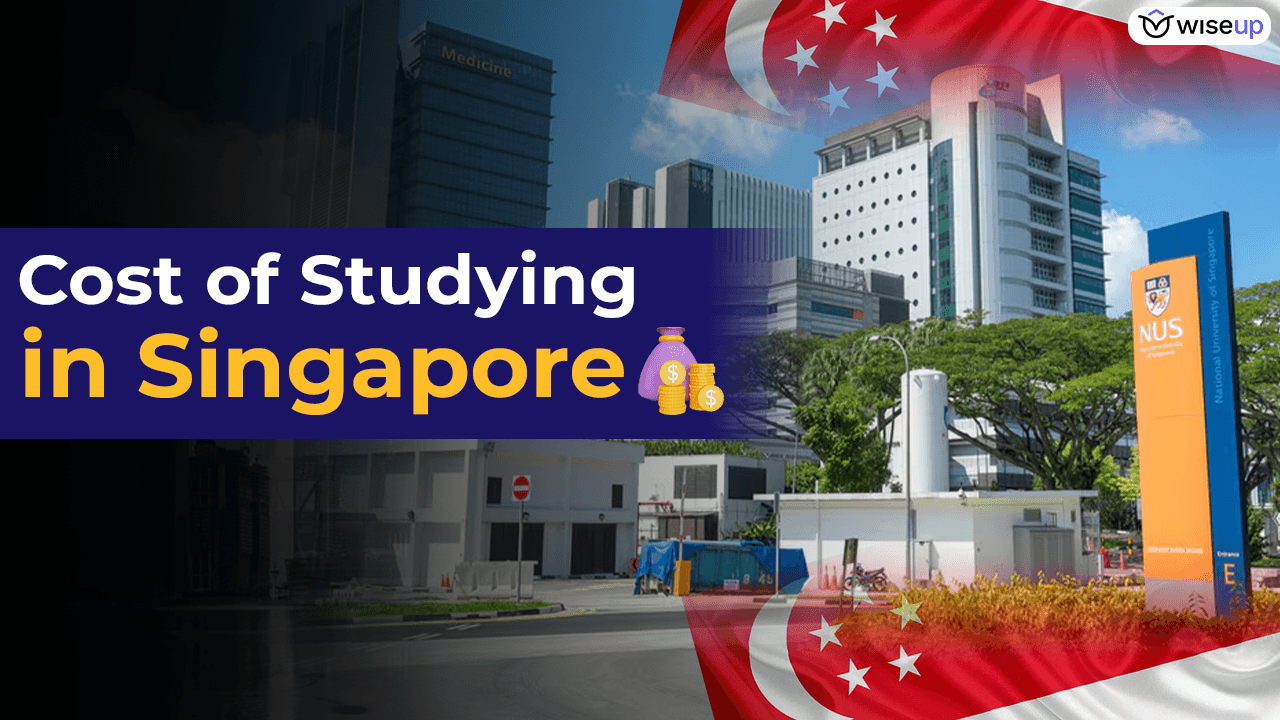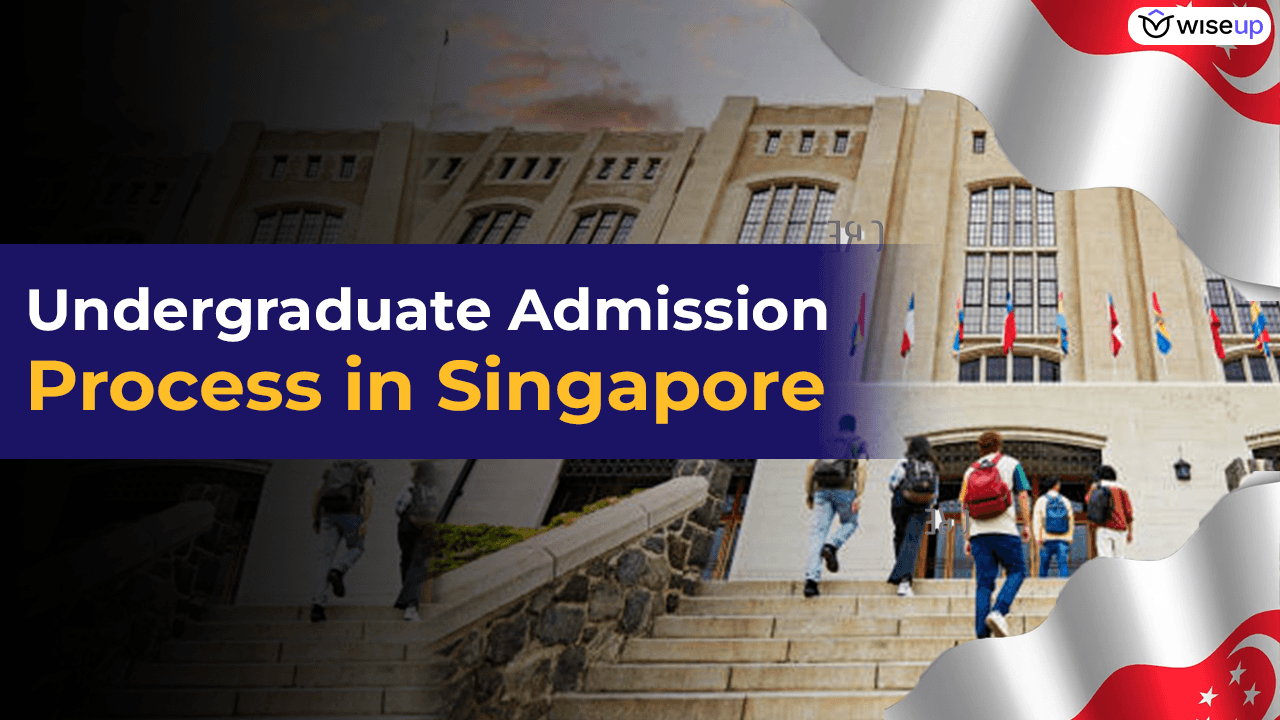Tuition Fees for Studying in Singapore
When it comes to studying in Singapore, tuition fees are the biggest expense. Here’s a breakdown of what to expect at different educational levels:
Undergraduate Programs
Without scholarships or government subsidies, international students typically pay around 35,000 SGD per year (about ₹22 lakhs).
Over a typical four-year program, that totals around ₹88 lakhs.
However, fees can vary depending on the program, university, and duration, especially for engineering programs at top universities like NTU and NUS. It’s essential to verify the costs for your specific course.
Master’s Programs
There are two types of master’s programs:
Coursework-based: These programs generally last 1 to 1.5 years, and fees range from 34,000 to 54,000 SGD (roughly ₹20-30 lakhs). For fields like Data Science and Artificial Intelligence, the fees tend to be on the higher end. Compared to other countries, this is quite affordable.
Research-based: The duration of these programs varies between 1 to 3 years, depending on how long it takes to complete the research. The fee is calculated per semester at approximately 23,000 SGD (about ₹14 lakhs per semester). On average, completing a research-based master’s takes 2 years, totalling around ₹56 lakhs.
If the fees for research-based programs seem daunting, don’t worry — there’s an option to lower these costs through the Service Obligation Scheme (details below).
PhD Programs
The fees for PhD programs are similar to those for master’s by research, and they generally last around 4 years. While the total cost can be high, most PhD students are offered scholarships, so they rarely pay the full amount.
For details on available scholarships in NTU, check out my previous video, where I break down the full application process:
Miscellaneous Fees
In addition to tuition, there’s a small miscellaneous fee for health and student services, which is about 250 SGD per semester (approximately ₹30,000 per year).
Living Expenses in Singapore
Living in Singapore, the world’s 5th most expensive city, can seem intimidating. However, by managing your expenses carefully, you can make it work. Here’s a breakdown of the major living expenses:
Accommodation
The largest part of your living expenses will be accommodation. Both NTU and NUS offer affordable on-campus housing.

It’s strongly recommended to take on-campus accommodation if available, as it’s the cheapest option. Depending on the type of room (shared, single, AC, non-AC, etc.), costs range from 400 to 600 SGD per month (around ₹25-30k).
If you choose to live off-campus, costs start at 800-900 SGD per month for a shared room, and at least 1,500 SGD for a single room. The cost increases depending on the property type and location.
Take a look at NUS dorm in the video below:
Food
On average, food costs around 5 SGD per meal, which totals about 300-400 SGD per month. Cooking some meals yourself can help lower this cost.

Transportation
Transportation costs vary depending on how far you live from the campus. Using MRT and public buses generally costs 100-150 SGD per month. If you stay on campus, the cost is lower. However, using cabs can quickly increase your expenses, with each ride costing around 30 SGD.

Miscellaneous Expenses
Other expenses, such as groceries, entertainment, and occasional outings, can add up to 200-300 SGD per month. In total, monthly living expenses range from 1,000 to 2,500 SGD (around ₹7-18 lakhs per year).
This range reflects a modest lifestyle. However, Singapore can be as expensive as you want — it’s easy to spend 200 SGD on a single night out if you’re not careful.
Given below is a table that summarises the tuition fees and living expenses for your quick reference:

Cost-Offsetting Options
If these costs seem overwhelming, Singapore offers several ways to help you manage them.
Service Obligation Scheme
The Service Obligation Scheme is a unique tuition grant that significantly reduces tuition fees, provided you work in Singapore for 3 years after graduation. This scheme is available for undergraduate and research-based master’s programs.
For undergraduates, this can reduce tuition from ₹88 lakhs to ₹44 lakhs.
For research-based master’s programs, it can reduce the cost from ₹56 lakhs to ₹28 lakhs.
Keep in mind, this scheme applies only to tuition fees, not living expenses.
Part-Time Work
International students in Singapore are allowed to work part-time for up to 16 hours per week.
Jobs range from working in supermarkets and libraries to remote internships or assisting professors on research projects.
These part-time roles are paid and can offset 50-100% of your living expenses, depending on the job and hours worked.
To learn more about part-time jobs and how to find them, you can check out my detailed video on this topic:
In conclusion, while studying in Singapore can be expensive, there are many options to offset the costs through scholarships, service obligations, and part-time work. Hopefully, this breakdown has given you more clarity about the financial aspect of studying in Singapore.
If you need further assistance or personalized guidance, feel free to join me for a Singapore Consultation. All the best!




